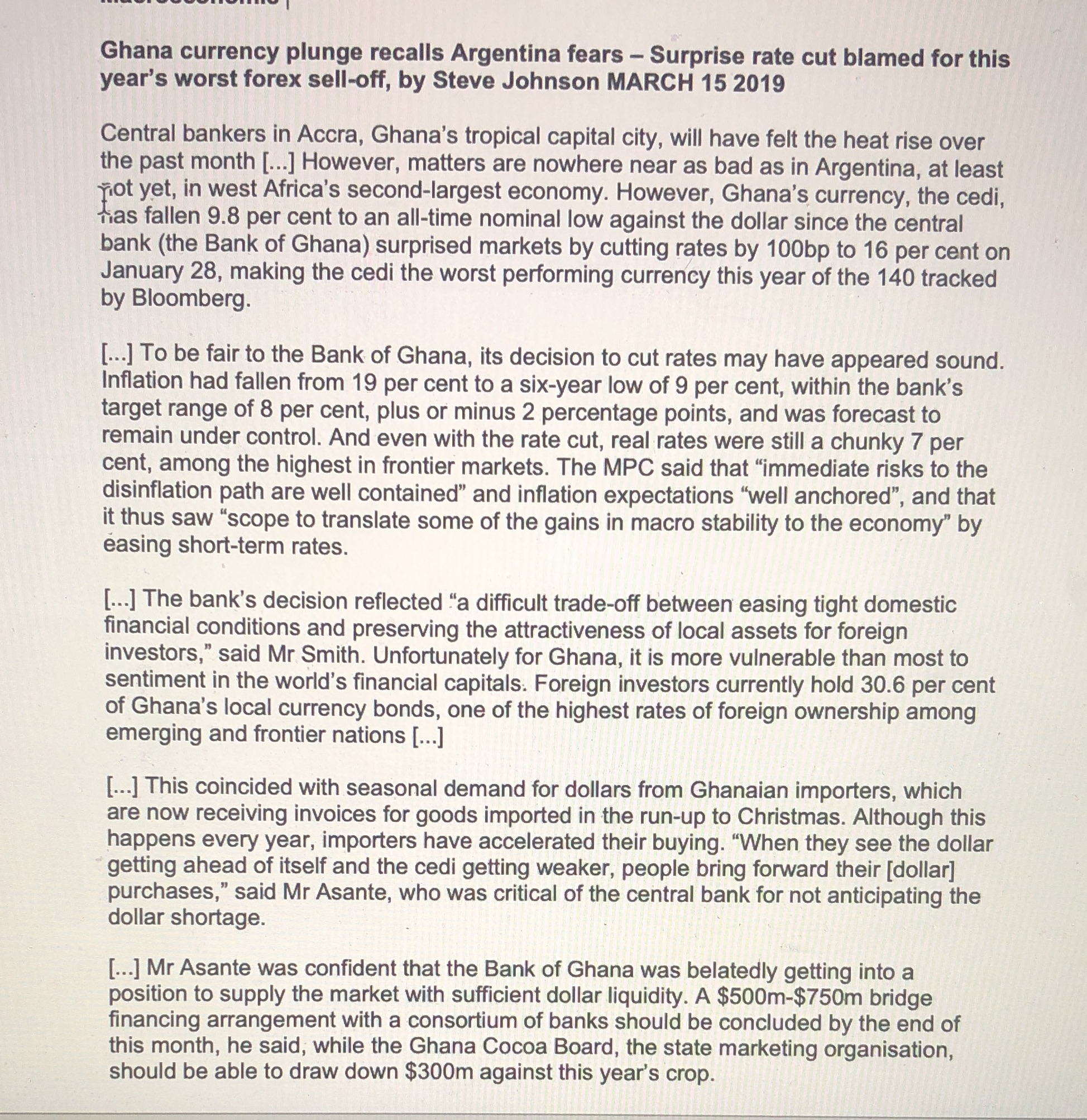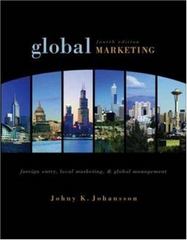Below are three questions asking about different influences on the exchange rate of the Ghanaian Cedi versus the US$ that are discussed in the article above. In each question, assume ceteris paribus and do not consider the discussion and changes from the other questions. B) Explain how monetary policy intervention influenced the exchange rate of the Cedi versus the US$. Use a diagram in your answer. C) Explain how an increased demand by foreign investors for Ghanaian government bonds will influence the exchange rate of the Cedi versus the US$. Use a diagram in your answer. D) Explain how the seasonal changes in demand for imports into Ghana will influence the exchange rate of the cedi versus the US$. Use a diagram in your answer.
Ghana currency plunge recalls Argentina fears - Surprise rate cut blamed for this year's worst forex sell-off, by Steve Johnson MARCH 15 2019 Central bankers in Accra, Ghana's tropical capital city, will have felt the heat rise over the past month [...] However, matters are nowhere near as bad as in Argentina, at least not yet, in west Africa's second-largest economy. However, Ghana's currency, the cedi, has fallen 9.8 per cent to an all-time nominal low against the dollar since the central bank (the Bank of Ghana) surprised markets by cutting rates by 100bp to 16 per cent on January 28, making the cedi the worst performing currency this year of the 140 tracked by Bloomberg. [...] To be fair to the Bank of Ghana, its decision to cut rates may have appeared sound. Inflation had fallen from 19 per cent to a six-year low of 9 per cent, within the bank's target range of 8 per cent, plus or minus 2 percentage points, and was forecast to remain under control. And even with the rate cut, real rates were still a chunky 7 per cent, among the highest in frontier markets. The MPC said that "immediate risks to the disinflation path are well contained" and inflation expectations "well anchored", and that it thus saw "scope to translate some of the gains in macro stability to the economy" by easing short-term rates. [...] The bank's decision reflected "a difficult trade-off between easing tight domestic financial conditions and preserving the attractiveness of local assets for foreign investors," said Mr Smith. Unfortunately for Ghana, it is more vulnerable than most to sentiment in the world's financial capitals. Foreign investors currently hold 30.6 per cent of Ghana's local currency bonds, one of the highest rates of foreign ownership among emerging and frontier nations [...] [...] This coincided with seasonal demand for dollars from Ghanaian importers, which are now receiving invoices for goods imported in the run-up to Christmas. Although this happens every year, importers have accelerated their buying. "When they see the dollar getting ahead of itself and the cedi getting weaker, people bring forward their [dollar] purchases," said Mr Asante, who was critical of the central bank for not anticipating the dollar shortage. [...] Mr Asante was confident that the Bank of Ghana was belatedly getting into a position to supply the market with sufficient dollar liquidity. A $500m-$750m bridge financing arrangement with a consortium of banks should be concluded by the end of this month, he said, while the Ghana Cocoa Board, the state marketing organisation, should be able to draw down $300m against this year's crop







